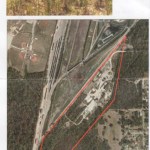EPA Investigates City’s Superfund Site
Published 8:00 am Thursday, April 17, 2025


|
Getting your Trinity Audio player ready...
|
EPA Launches Next Phase of Investigation at Colonial Creosote Superfund Site in Bogalusa
By Alexander Moraski
THE DAILY NEWS
Trending
The U.S. Environmental Protection Agency (EPA) is preparing to begin the next round of field sampling this April at the Colonial Creosote Superfund Site in Bogalusa. This is part of an ongoing Remedial Investigation/Feasibility Study (RI/FS) aimed at assessing contamination and determining cleanup options. According to the EPA’s March 2025 fact sheet, this round of soil sampling will last about three weeks, building upon previous phases conducted between May 2017 and February 2020 and additional soil analysis conducted from July to October 2024. The Colonial Creosote Site, located on a 32-acre property near Hickory Avenue and the Illinois Central Gulf Railroad, is bounded by residential areas within half a mile and downstream fisheries that site conditions may impact. The EPA stated that once sampling data is reviewed and compiled, it will host a public information session in fall 2025 to explain the findings and proposed actions. The RI/FS process includes collecting environmental samples,
implementing safety procedures, conducting community outreach, and developing quality assurance measures.
Creosote was used at the site from around 1911 until 1953 for wood treating operations, including bark removal and product storage. The property was later operated by Lakeview Sand and Gravel Co., which became Bogalusa Concrete, continuing operations at the site until 2008. The EPA emphasized the importance of community involvement throughout the cleanup process. A Community Involvement Plan (CIP) is being developed to identify local concerns and guide communication efforts. The agency encourages residents to provide feedback and participate in the cleanup planning through public meetings, direct contact with officials, or via the Technical Assistance Grant (TAG) program, which provides up to $50,000 to help community groups hire independent technical advisors.







